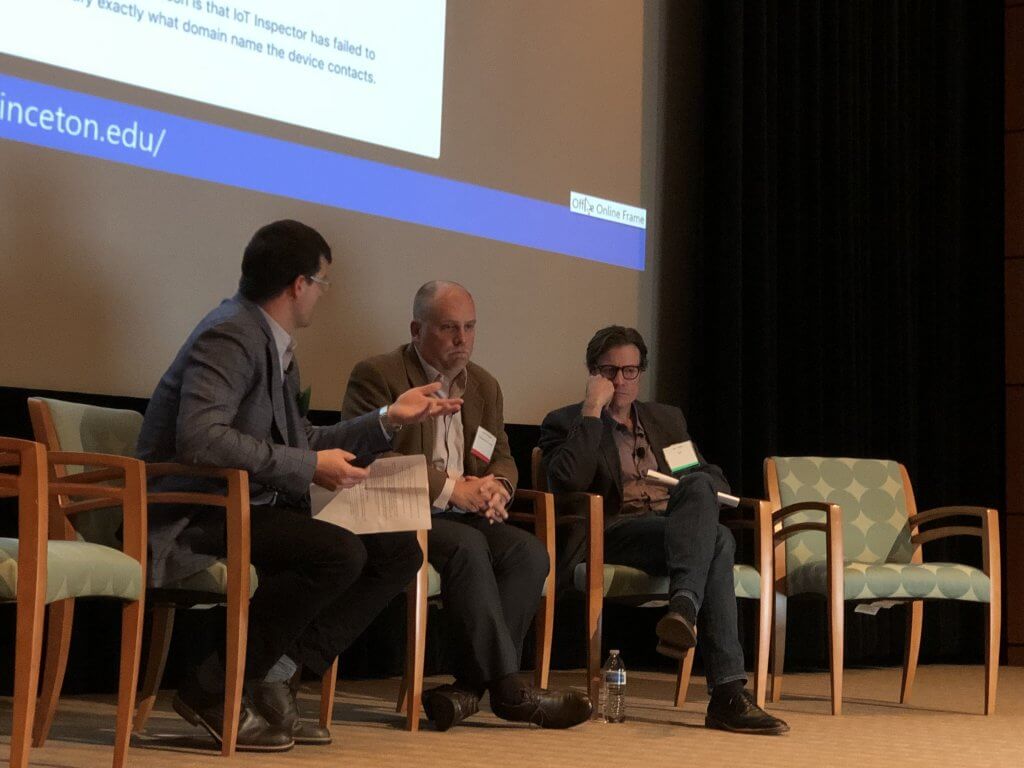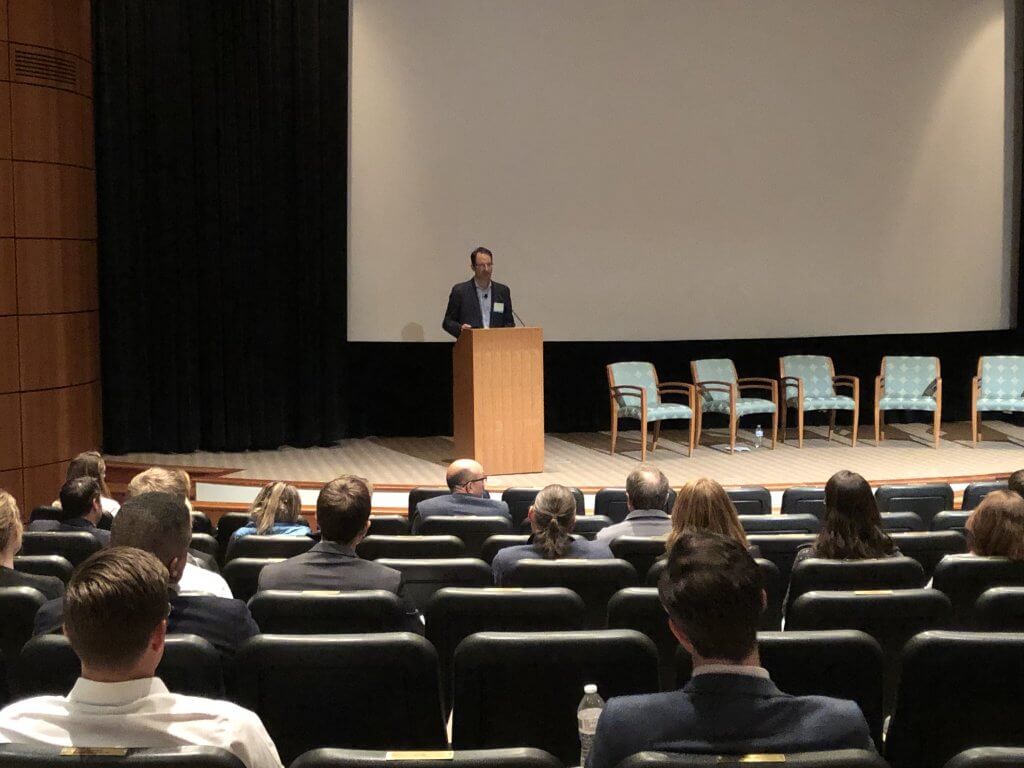Events
CableLabs Sponsors FCBA/IAPP “Data Is King”

Many of today’s most popular consumer products and services are powered by the exponential growth in the generation, collection and use of personal data, enabled by ever-increasing broadband capacity, processing power and storage. These products and services provide consumers with unparalleled personalization, efficiency and convenience. However, the technologies and practices surrounding personal data also create new dimensions of risk to individuals, institutions and society alike.
In response, governments both in the United States and around the world are under increasing pressure to develop new legislation and regulatory models to address these growing concerns. In the past year alone, we have seen the implementation of the European Union’s sweeping General Data Protection Regulation (GDPR), the passing of the California Consumer Privacy Act, and multiple hearings in the U.S. Congress stemming from numerous data breaches and other scandals involving the potential misuse of consumers’ personal data. Here at CableLabs, we recognize the interplay and potential impact of emerging privacy regulations on the direction of next-generation Internet applications.
In that spirit, CableLabs sponsored “Data Is King” – U.S. Privacy Developments and Implications for Global Markets and Technology Development, a recent event co-hosted by the Federal Communications Bar Association (FCBA) Rocky Mountain Chapter and the IAPP Denver/Boulder KnowledgeNet Chapter. The event gathered luminaries from across the policy and technology spectrum to explore trends and recent developments in privacy law and regulation, as well as the potential impact that these policies will have on the products and services of tomorrow.
The event was kicked off by Martin Katz (Chief Innovation Officer and Senior Advisor for Academic Innovation and Design at the University of Denver and the Executive Director at Project X-ITE). Katz discussed the existing gaps and fragmentation in today’s U.S. privacy regime and highlighted the drawbacks of the EU’s approach to comprehensive personal data protection legislation (GDPR). In Katz’s view, such an approach creates a significant and costly compliance regime that can stifle new startups and small businesses, and more generally, innovative new products and services. He emphasized that any comprehensive U.S. federal regime should recognize and seek to minimize compliance costs and ensure room for innovation while protecting consumer choice, trust and accountability.
Tracy L. Lechner (Attorney and Founder at the Law Offices of Tracy L. Lechner) moderated the first panel session, focused on trends and recent developments in privacy regulations domestically and internationally, with the following panelists: Beth Magnuson (Senior Legal Editor of Privacy and Data Security at Thomson Reuters Practical Law); Dale Skivington (Compliance and Privacy Consultant, Adjunct Professor at the University of Colorado, and Former Chief Privacy Officer at Dell); Erik Jones (Partner at Wilkinson, Barker, Knauer); and Scott Cunningham (Owner at Cunningham Tech Consulting and Founder of IAB Tech Lab).
The panelists agreed that the general position of industry has evolved from a preference for best practices with agency oversight to a recognized need for U.S. federal legislation. This shift has been spurred by a desire for a common compliance framework in light of developing differences in state laws and diverging international privacy regimes. The panelists emphasized that changing privacy regulatory requirements has forced organizations to make frequent and costly IT overhauls to ensure compliance that arguably create little to no value for consumers. For instance, GDPR’s expansive definition of “personal data” created a herculean project for large organizations to take the foundational step of identifying and classifying all the potentially covered data. The panelists agreed that state attorneys general could have a valuable and thoughtful role in enforcement, but they also believe that specific requirements should be standardized at the federal level and be based on an outcome- or risk-based approach, unlike GDPR’s highly prescriptive approach.
Mark Walker (Director of Technology Policy at CableLabs) led a second-panel discussion, focused on the interplay of privacy regulation and technology development. The panel featured Walter Knapp (CEO at Sovrn), Scott Cunningham and Danny Yuxing Huang (Postdoctoral Research Fellow at the Center for Information Technology Policy at Princeton University). Walker framed the panel discussion in historic terms, highlighting the privacy concerns generated through the widespread availability of the portable camera in the late 1800s, through the emergence of electronic eavesdropping capabilities in the 1960s and, more recently, through the broad adoption of RFID technology. For each of these examples, public concern drove legal and regulatory changes, but more fundamentally, the privacy “panic” subsided for each technology as society became more familiar and comfortable with each technology’s balance of benefits and drawbacks.

Through that lens, the panelists examined GDPR and highlighted the high associated compliance costs, from both a technical implementation and revenue perspective. Faced with these costs, many smaller publishers are choosing to cut off access to their content from covered geographies rather than trying to comply. In comparison, large Internet firms have the resources to ensure compliance even in a costly and highly fragmented regulatory environment. Until recently, the Internet has largely matured without defined geographic borders and has nearly eliminated global distribution costs for smaller publishers. However, this trend may be reversed in the face of an emerging fragmented and highly regulated environment, reducing the viability of smaller publishers and driving unintended market concentration.
Turning to emerging technologies, Huang described his research into the security and privacy implications of consumer Internet of Things (IoT). He provided an overview of a newly released research tool, Princeton IoT Inspector, that consumers can easily use to gain detailed insights into the network behaviors of their smart home IoT devices. Through this tool, consumers can gain a better understanding of how IoT devices share their personal information. He illustrated how IoT Inspector was able to identify the numerous ad networks and other domains a streaming video device communicated with while streaming a single television program; surprisingly, the streaming device communicated with more than 15 separate domains during that single streaming program.
The event closed with Phil Weiser, Colorado’s Attorney General, providing keynote remarks that outlined the current state of legislative efforts, explained potential approaches that address key privacy challenges and highlighted the role of state attorneys general in developing regulatory approaches and enforcing them. Attorney General Weiser recognized that although curbing a patchwork of state laws in favor of a single federal one would be the ideal outcome, it is unlikely to happen in a reasonable timeframe, saying:
A first best solution would be a comprehensive federal law that protected consumer privacy. Such a law, like the Dodd-Frank law, should authorize State AGs to protect consumers. When Congress starts working on such a law, I will be eager and willing to support such an effort. After all, differing laws and reporting requirements designed to protect privacy creates a range of challenges for companies and those working to comply with different—and not necessarily consistent—laws.
In today’s second-best world, I believe that States have an obligation to move forward. We should do so with a recognition that we need to collaborate with one another and develop approaches that recognize the challenges around compliance. We can use your help and engagement and we work towards just this end.

As CableLabs continues to focus on developing new and innovative network technologies, we must continue to ensure that we have a sound understanding of the rapidly evolving privacy landscape, both here and abroad. But, just as importantly, policymakers should have a sound understanding of how the various regulatory approaches may impact current and developing technologies. Events like this help bridge those gaps in understanding.




